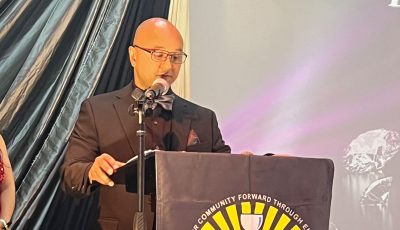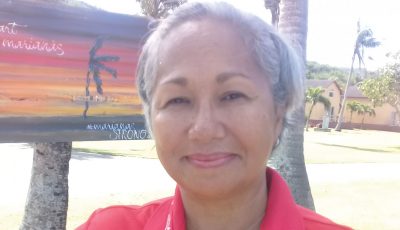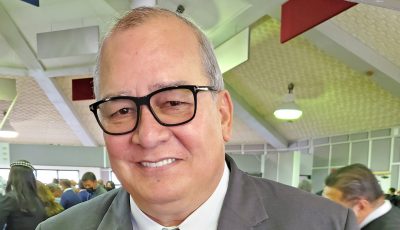PALACIOS ON CW BILL
‘I am happy to see movement’
Senate President Arnold I. Palacios (R-Saipan) remains optimistic about the foreign worker situation in the Commonwealth, as the U.S. House of Representatives prepares to vote tomorrow on the bill that would effectively extend the foreign worker program for another 10 years.
In a brief interview with Saipan Tribune over the weekend, Palacios said he and Delegate Gregorio Kilili C. Sablan (D-MP) both understand that the bill extending the foreign worker program, or CW bill, is a bipartisan legislation.
“I am very hopeful that after all the deliberations that the U.S. House would pass it,” he said.
In an announcement Saturday, Sablan said the rebooted CW bill, officially called the U.S. Workforce Act, has been scheduled for a vote in the House.
“The schedule has just been published,” Sablan said. “So, it is official. The reboot of the U.S. Workforce Act, H.R. 5956, that [House Natural Resources Committee] Chairman [Rob] Bishop and I introduced last week will be up for debate and a vote on Tuesday.”
Sablan, who was on Saipan, had to abruptly fly to Washington, D.C. so he could be in the Capitol when the House votes on the bill this week. Once it passes the House, the bill would go to the U.S. Senate for a similar vote. It is expected to sail through the Senate as a previous version of the bill has already been approved by the upper chamber. From there, unless the U.S. Senate inserts some amendments, it goes to the desk of President Trump.
In early May, Palacios wrote to U.S. House Speaker Paul Ryan (R-WI), U.S. Rep. Rob Bishop (R-UT), and Sablan’s office, urging them to support the much-needed bill.
Bishop introduced a rebooted bill, H.R. 5956, that was co-sponsored by the delegate, last week after it was determined that a U.S. Senate amendment to U.S. Sen. Lisa Murkowski’s S. 2325—the original CW extension bill—contained a revenue-generating provision.
According to the U.S. Constitution, only the U.S. House may introduce legislation that generates revenue.
The U.S. Senate previously amended S. 2325 to include an anti-fraud fee.
According to an announcement from Sablan’s office, H.R. 5956 is up for U.S. House discussion under suspension of the rules tomorrow. He said this method of passing bills is only commonly used for “non-controversial bills.”
“A two-thirds majority of the members, present and voting, is required for passage, although often a simple voice vote is used,” Sablan said in his statement.
The U.S. Senate, in their discussion of S. 2325, inclusive of the anti-fraud fee amendment, garnered unanimous consent through a voice vote. According to a previous statement from Sablan, H.R. 5956 is already inclusive of the amendments of S. 2325.
“I am, of course, very grateful for the leadership [Bishop] demonstrated to keep us moving forward. Since 2016, his office has been actively involved in developing the policies contained in [S.2325 and HR 5956],” said Sablan in his statement. Bishop is also the chair of the U.S. House Committee on Natural Resources.
“Chairman Bishop and I are working our respective sides of the aisle so that we have the necessary support of both the Republic and Democratic caucuses,” Sablan said, adding that he was also in touch with the U.S Senate for faster movements “when the bill passes the House.”
Both H.R. 5956 and S. 2325 seek to reset the CW cap for fiscal year 2019 to 13,000; provide additional validity to long-time CW workers; and extend the CNMI transitional period, along with programs under it such as the CW program and the E-2C investor program, to fiscal year 2029.



























